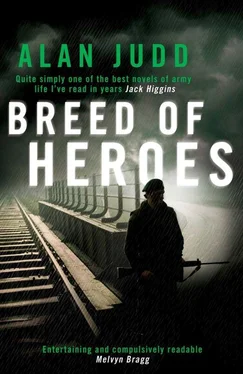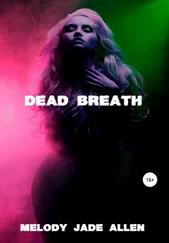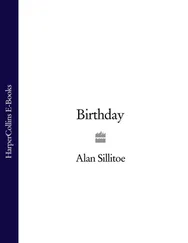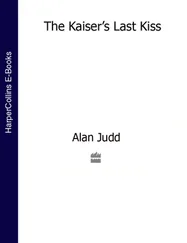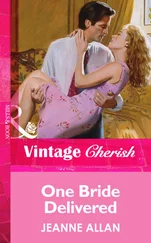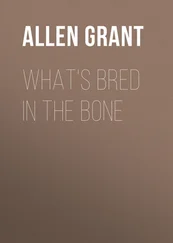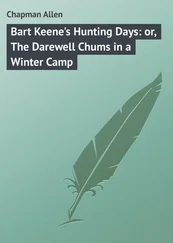‘You have been mortared,’ the CO said to Charles. ‘Your platoon is decimated and you are dead.’
For one wild moment Charles thought he might be sent home in disgrace.
‘What do you intend to do about it?’ continued the CO.
The rain hissed in the stream. The CO and his wireless operator were still standing in it. Charles’s platoon gazed at them without curiosity. ‘We had to make a detour via the bridge, sir,’ said Charles, ‘because there’s a cross-country motor-cycle event upstream.’
‘You could have forded it. Why didn’t you do that?’
‘We were told that the stream was the Rhine, sir.’
‘Who told you that?’
‘With respect, sir, you did.’
The CO waded ashore and scrambled up the bank, followed, at the second or third attempt, by his heavily-burdened wireless operator. The rain ran in streaks through the mud on his face and tiny droplets clung to his heavy eyebrows. His dark eyes looked for a few moments as though he were considering whether to have Charles shot or drowned. He then looked at the stream, as though he had decided the business was not worth a bullet, and then as far up the hill as the clouds permitted. ‘You should have used your initiative. Anyway, how did you know this bridge was still standing?’
‘Well, sir, I could see it.’
‘Not this bridge, nincompoop, not this physical bridge. The one over the Rhine that you were attempting to cross. How did you know that was still standing, eh?’
‘I suppose I didn’t, sir.’
‘I suppose you didn’t too. Any more than you knew it was covered by heavy mortars, which you should’ve. D’you understand me?’
‘Yes, sir.’
‘Good.’ The rain streamed down their faces. ‘Now, what’s all this about a motor-cycling event?’
‘They’re holding one upstream, sir, in the area that we were supposed to occupy.’
‘But this is a military training area. It’s MOD land. Didn’t you throw them off?’
‘No, sir.’
‘Did you try?’
‘No, sir.’
‘You’re as wet as the bloody weather, Thoroughgood. Show me.’
They set off back the way they had come. Charles’s platoon was depressed beyond speech or gesture and squelched mindlessly behind the CO. The CO marched briskly, however. He seemed to be a man who enjoyed a challenge. He no doubt saw rain as a challenge, and the more it rained the more it challenged, so the more he marched. They reached the scene of the outrage, which consisted of a huddle of wet spectators watching men obliterated by mud drive noisy motor-bikes up and down hills, and fall off on corners. The CO approached the young man who was easily the tallest, rightly assuming him to be the leader.
‘This is a military training area,’ said the CO.
The young man had a pleasant, intelligent face. ‘Good day, Colonel.’
‘There is a military exercise in progress. If you don’t get your people and your machines out of here within the next few minutes there is a very good chance that you will be mortared. My men are about to cross the Rhine.’
‘That would be unfortunate, since I have a letter here from the Army Department giving us permission to use this area today.’ He produced a soggy envelope.
‘Civil servants interfering again. It’s bloody silly.’
‘I quite agree, Colonel. Where is your Rhine?’
The CO jabbed his thumb towards the stream. ‘Down there.’
‘Yes, of course. I see it now.’
They hung around. The CO clearly wanted to continue the conversation. Four motor-cyclists collided in a great shower of mud and then, moving like moon-men, slowly disentangled themselves and their machines. The soldiers gazed impassively at the spectacle. It was doubtful whether even a real mortar bombardment would have stirred them to interest. However, the CO could not leave without a parting shot.
‘You must have a pretty spare job anyway if you can spend your afternoons watching this sort of rubbish,’ he said.
The tall young man inclined his head politely. ‘Actually, Colonel, the same as yours. Nicholas Stringer, Coldstream Guards.’
Though forced to acknowledge that there were elites other than No. 1 AAC(A), the CO always denied them real status. He referred to them all as ‘self-appointed’. This was particularly true of the Guards, and of all the Guards regiments the Coldstreams — whom he always called ‘magpies’ because of their black and white colours — were the worst, in his view. He looked at the Guards officer with an expression of baffled anger, until a retort came to mind. ‘Whose side were you on in the Civil War?’ he snapped, then turned and squelched away. The Guards officer watched him go, his own face registering polite incomprehension.
Charles squelched after him, similarly puzzled. He had a vague idea that the Coldstreams had been on Cromwell’s side. Whichever it was, No. 1 AAC(A) had no battle honours from that war, not having been raised until a century after and then not in the present form. Nevertheless, the CO’s discomfiture was something he was able to savour for the rest of the exercise as a slight antidote to his own.
This time it was the sound of the sliding door of the compartment being slammed back that jerked Charles from his reflections. It was Edward returning from the O Group, red and flustered. He stumbled bad-temperedly over legs and kit. He had been berated because of C company’s alleged scruffiness. His career was again in jeopardy. He seemed unaware of any other business discussed at the O Group. ‘Lost your respirator?’ he said to Charles. ‘Your own fault for leaving it lying around for someone to walk off with. Care of kit, first rule of survival in the Army. You’d better nick one from somewhere before the CO finds out. Go and inspect your platoon.’
Charles’s platoon was in the last but one carriage. It took about ten minutes of squeezing and shoving in the crowded corridor to reach them. When he found them the floor was littered with beer-cans and cigarette-ends, the air thick with smoke, laughter and obscenities. His soldiers sprawled in their seats, unbuttoned, feet up on the tables, happy. He knew there was no reason to inspect them, and nothing to inspect them for. It was simply that Edward felt someone ought to be doing something. He counted them and stayed chatting for a few minutes. Their company was frequently more congenial than that to be had in the Officers’ Mess. Sergeant Wheeler, his platoon sergeant, was, as usual, nowhere to be found. Charles never ceased to be amazed by the ability of soldiers to transform an environment. Within minutes they could make anywhere look as though it had never been anything but a transit camp, handling thousands of troops every week. Perhaps one day he would take them for tea in Fortnum and Mason’s.
For the rest of the journey Charles was able to read. Edward was gloomily silent, and Tim and John kept him company. None of them had books. The only interruption was when the company colour sergeant brought round cold tea and stale sandwiches, which were welcome none the less.
It was dark when they pulled into the station at Liverpool, and raining. They were to get the night ferry to Belfast. Charles struggled into his webbing and lugged his kit on to the platform. It took him two journeys. The noise and confusion combined with the darkness and rain to make the station seem like some vast purgatorial clearing house. Soldiers and their kit filled the platforms. Rumour flourished. It was said that the coaches that were to take them to the boat had not arrived, that they had arrived but had left, that there was a nonsense over the stations, that the ferry had left, that they would have to march to the docks. Charles’s platoon was just outside the station, where there was no shelter from the rain. For once Sergeant Wheeler was where he should be. He was the playboy of the Sergeants’ Mess, a good-looking, good-natured athlete, successful with women but too easy-going with soldiers.
Читать дальше
